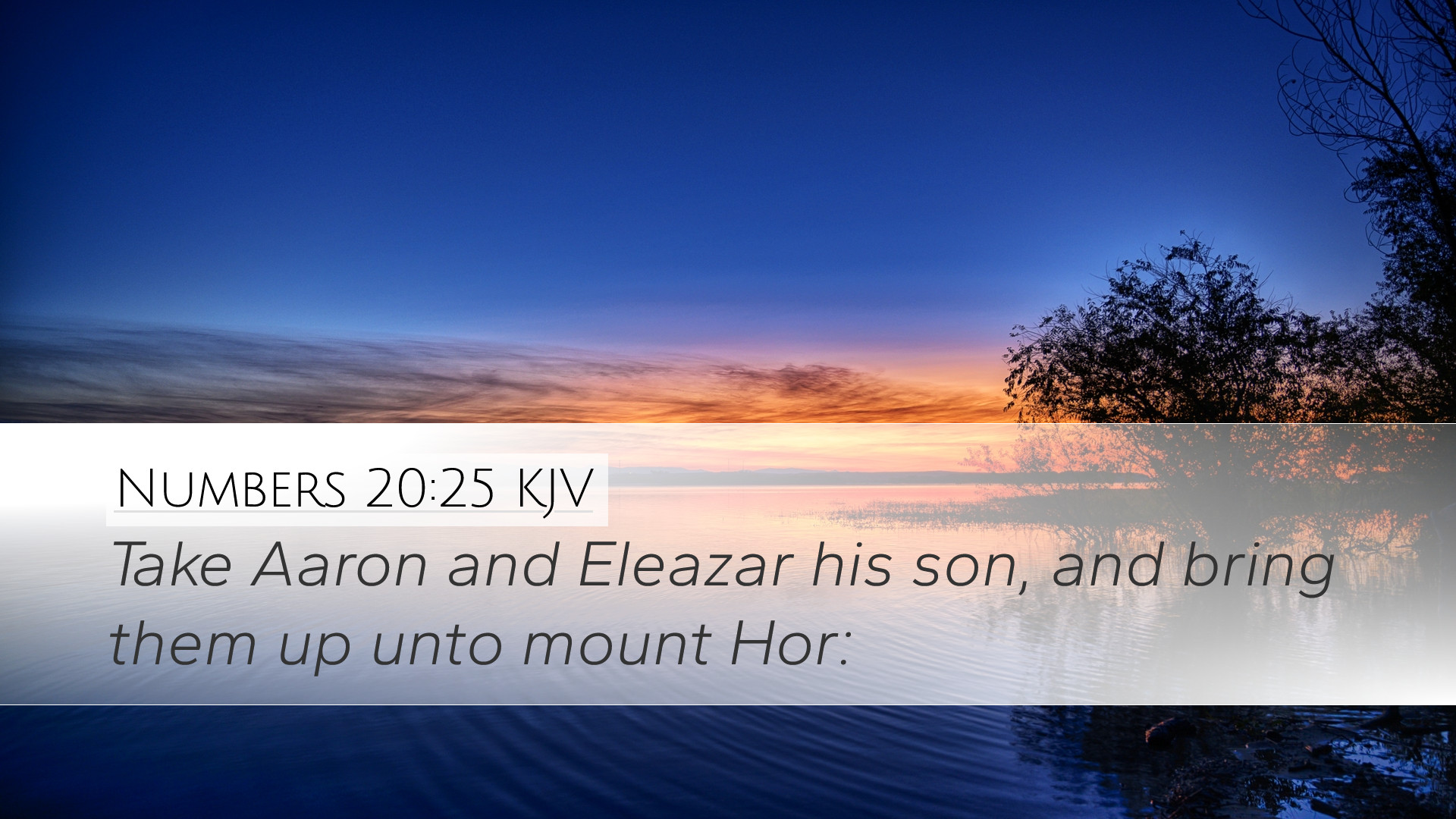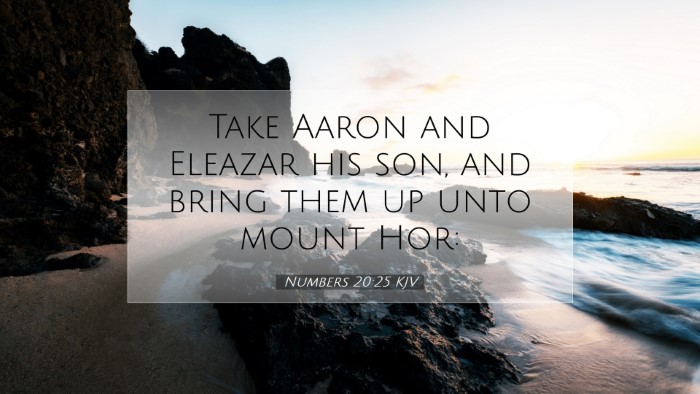Commentary on Numbers 20:25
Verse: "Take Aaron and Eleazar his son, and bring them up unto mount Hor:" (Numbers 20:25, KJV)
Contextual Background
This verse falls within a pivotal moment in the book of Numbers, where the Israelites are navigating through desert experiences and divine instructions. As they wander, God continues to direct their leadership structure amid impending transitions, particularly concerning Aaron's impending death.
Thematic Importance
The significance of Numbers 20:25 extends beyond static historical narrative; it imparts lessons on leadership, divine appointment, and the continuity of God’s covenant community. The necessity of Aaron's succession hints at God's ongoing plan and the importance of faithful leadership among His people.
Exegesis and Insights
In examining Numbers 20:25, we can draw insights from renowned biblical scholars:
-
Matthew Henry highlights the gravity of the transition in leadership as Aaron, who had served as a high priest, faces death. Henry emphasizes the importance of Eleazar stepping into the role of high priest, indicating that God's work will continue through successive generations.
-
Albert Barnes offers a profound understanding of the implications of this change. He points out how Moses is commanded to take Aaron and Eleazar to Mount Hor. Barnes observes that this journey signifies not only physical ascent but also a spiritual elevation—a moment of divine revelation and preparation for the new order of priesthood.
-
Adam Clarke interprets this verse as foreshadowing the establishment of the priesthood through Eleazar, noting how divine appointments are central to safeguarding the spiritual lineage among the Israelites. Clarke argues that this continuity preserves the sanctity of worship and Israel’s covenant with God, crucial during their tumultuous wilderness journey.
The Leadership Transition
The act of bringing up Aaron and his son to Mount Hor represents much more than a physical relocation; it is emblematic of the transfer of authority and the intrinsic duty tied to the high priest's office. Each leader carries the weight of Israel's covenant and, in their lives, reflects God's intentions for His people.
- God’s Sovereignty: The divine instruction to bring Aaron up to the mountain demonstrates God's sovereignty over life and death. This progression to the mountain is reminiscent of how other biblical figures received critical revelations or transformative experiences in their leadership transitions.
- Preparation and Revelation: The choice of a mountain is significant throughout the Bible; it often serves as a place for divine encounter. This connection imbues the transition with a sense of sacredness as Eleazar prepares to assume responsibilities that will impact the community. The mountain becomes a symbolic threshold between the past leadership and the future direction of the Israelite nation.
Application for Pastors and Theologians
The passage invites particular reflection on the nature of leadership within the ecclesiastical and community contexts:
- Continuity of Leadership: Just as Eleazar steps into his role, current church leaders are called to identify and mentor successors. This process ensures that ministry is not stagnant but intergenerational, enabling the church to thrive.
- Holiness of Office: The high priest’s role exemplifies the weight of religious leadership. Pastors are reminded of their responsibility to maintain the holiness and integrity of their office, perpetuating worship and teaching that aligns with God’s word.
- Divine Guidance: The narrative underscores reliance on God’s guidance for transitions. The community must remain attuned to God’s voice in appointing leaders who reflect biblical values and fulfill His will.
Conclusion
In Numbers 20:25, we encounter a rich tapestry of meaning woven through divine instruction, leadership transition, and covenantal continuity. The insights drawn from esteemed commentators like Matthew Henry, Albert Barnes, and Adam Clarke equip today’s leaders and scholars with profound reflections on the nature of spiritual authority and the enduring presence of God amidst challenges.


